2007 Kenya Election
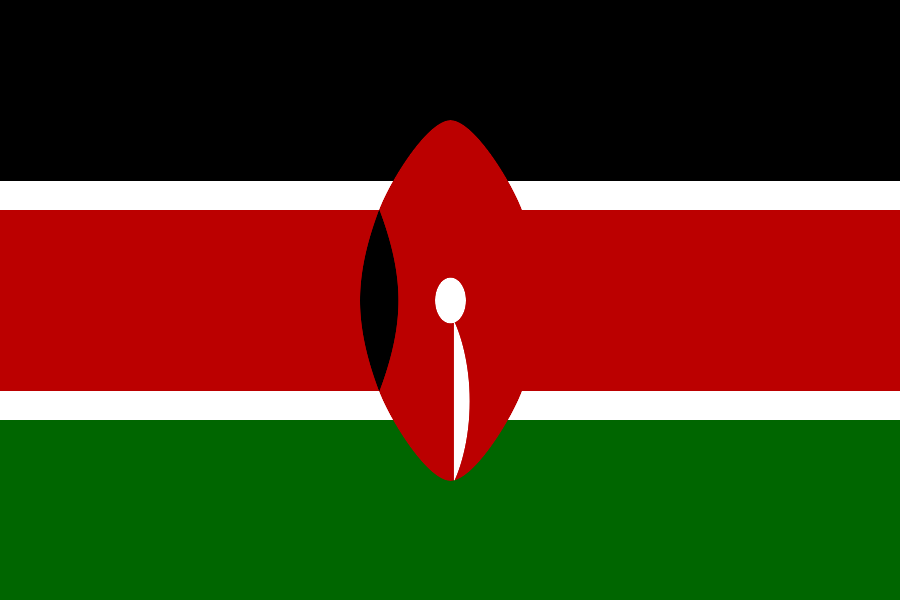
Flag of Kenya
I have watched the election crisis in Kenya unfold from the beginning, and am angry at the lack of concern the leaders have for the people they claim to represent.
Some background - I was born in Kenya, in Nakuru, went to school in Molo,and then again to school at Kenton College, Nairobi, until I was 12 years old. I have a little swahili - enough to get me around, and tell a couple of jokes.
Kenya is sub-saharan Africa’s third-largest economy, after South Africa and Nigeria. Its major port, Mombasa, serves as a shipping gateway not only for Kenya but also for Uganda, parts of Tanzania, Rwanda and Burundi. It is an old British Colony - my father moved there after the Second World War as part of a program of demobilisation. He had a farm that crossed the Equator in the Kenya Highlands, and grew wheat, barley, pyrethrum as cash crops, in addition to cattle and sheep. The land had never been ploughed before.
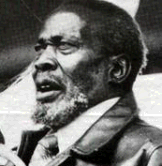
Jomo Kenyatta
Independence
After independence, Jomo Kenyatta was prime minister and then president until his death in 1978. He was a Kikuyu. After him came Daniel arapMoi, from the minority Kalenjin and a period of systematic looting of the countries treasury for the benefit of thoseat the top.
The Goldenberg scandal at one time creamed 10% of Kenya’s GDP for non-existent gold exports. The affair has never been satisfactorily investigated, because all the people involved were still in power.
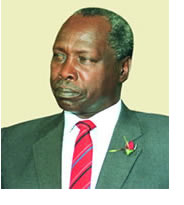
Daniel Arap Moi
Coup Attempt
In 1982 there was a failed coup attempt against Moi. Implicated in the coupattempt was Jaramogi Oginga Odinga, a former Vice President to Jomo Kenyatta,and his son Raila Amolo Odinga. Raila was detained without trial for six years. Has was released, but jailed twice after that for political campaigning. He fled the country to Norway, but returned to contest the 1997 presidential elections, where he came third to Moi.
After the election, Raila, a Luo, supported the Moi government, and led a merger between his party,NDP, and Moi’s KANU party. He served in Moi’s Cabinet as Energy Minister from June 2001 to 2002.
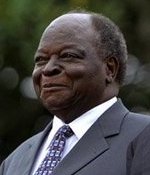
Mwai Kibaki
Kibaki
After Moi came Mwai Kibaki, who allied his party to Raila Odinga’s National Rainbow Coalition, campaigned on an anti-corruption ticket and won. Though Kibaki himself managed to avoid being tainted with corruption, his half-hearted investigations into the previous regimes looting and his retention in the government of many of the accused meant that there was little followup.
He also reneged on his promises to Odinga, who was overlooked for a cabinet position. There were disagreements about a proposed new constitution for the country, and Odinga split and formed the Orange Democratic Movement, after the symbol for the ‘No’ votein the failed constitutional referendum.
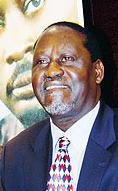
Raila Odinga
2007 elections
So, after a turbulent political scene, where Odinga and his various parties had played second fiddle for decades, opinion polls predicted a narrow win for Odinga in the 2007 elections. Kenya has a poor record for transparent elections, but this time it all looked on track.
The law had been changed to mandate counting to take place at the polling station, the results to be announced, printed receipts for all parties on location, and then the returning officer take the results to the central counting place in Nairobi.
There was a high turnout, and voting day came and went fairly peacefully. The people had spoken. The electoral commission announced the results as they came in, but anyway the newspapers all had their representatives on location, and were running up their own tallies based on the announced results. First returns went to Kibaki, but the tide turned, and by Saturday afternoon it seemed obvious to everyone looking at the trends that Odinga would get in by a narrow margin.
The Electoral Commission of Kenya fell silent. New results were not being announced. There is a maze of speculation, but my opinion is that results from Central Province (Kibaki’s stronghold) were deliberately delayed, and then numbers added to Kibaki’s toll - sufficient to tip the balance. Many of the later returns were not accompanied by Form 16A, which has to be signed by all parties at the polling station, and some results were even telephoned in, aclear violation of procedure.
In a chaotic Sunday, the head of the Electoral Commission to the results to State House, and found Kibaki with the Attorney-General ready to be sworn in in a small ceremony with no media. The result was already known.
The wikipedia page above will give more details of the aftermath, but suffice it to say that Raila Odinga was not a happy man. Having waited nearly thirty years on the sidelines, having spent six on those in prison, he was not going to take a stolen election lightly.
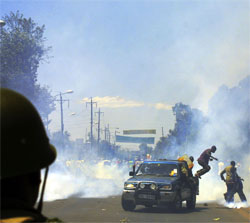
Violence after the elections
Though I believe Kibaki stuffed the ballot to win, there is evidence that Odinga stuffed as well. The obvious indication of a manipulated ballot was that the parliamentary elections showed Odinga a clear winner, but a lot more people appeared to have voted in the Presidential election, a reversal of statistics from the previous election. I do not believe the Kenya electorate is sophisticated enough to vote for one party in the parliamentary election, and another for the Presidential.
However, the pre-planned mayhem organised by Odinga’s party after the election, directed at Kikuyus in Odinga strongholds, is inexcusable. There was a backlash against Luos in Kikuku areas as well, all stoked by inflammatory remarks by politicians whipping up animosity. This is definitely not the role of a politician - it is the role of a calculating ruling class planning on filling their pockets from the treasury of the third largest economy in southern africa. Stoking tribal divisions is a despicable tactic by a politician, and that has been practiced on all sides. Tribal divisions are the easiest wounds to open, and the hardest to close.
Kenya runs on an election of local members of parliament - two-thirds of them were thrown out this time. Parliament has a reputation for pushing through bills that backdate large salary increases for themselves from the beginning of their term in office, despite having voted themselves an increase at the start.
International response
Besides nearly universal condemnation of the tallying process in the presidential election, what can the international community do ? Sanctions will not only hurt the voters who did their best, it will hurt other countries that depend on Kenya for its port Mombasa. The EU is reducing aid to Kenya (which was cut off for nearly a decade by the World Bank over the Goldenberg scandal), and I hope others will too. There seems little prospect of a recount making any sense, as it was so poorly carried out the last time. Another election seems equally distant. The two players must both acknowledge the shortcomings of the election, and do what is best for the country, not jostle for a better position at the feeding trough.
Kenyans deserve better politicians than the gluttons at the top now. Kenyans were asked in the 2007 elections, and they turned up in droves to reply. Their prayers have gone unanswered - because of cynical manipulators at the top of all parties that think only of themselves.
Update - election observers
The following account is drawn from the statements of four of the five domestic election observers allowed into the verification process the Electoral Commission of Kenya (ECK) afforded political party representatives the night before the announcement of the results for the Presidency. Kenyans for Peacewith Truth and Justice (KPTJ)
- Count Down to Deception: 30 Hours that Destroyed Kenya
- Kenyan Elections Observers’ Log: December 29-30, 2007
- Kenyan Elections Observers’ Log: the cost of anomalies, malpractices and illegalities noted to voters and their votes (spreadsheet)
- Kenya 2007 General Election: Comparison of Total Parliamentary vs. Total Presidential Votes Cast ECK Figures*(spreadsheet)
Update: Other articles and blogs
- Pray for Kenya A blog withmany articles
- Kenya: root sof crisis Some history of politics in Kenya
- Kenya on the brink Detailing Kenya’s corrupt politics